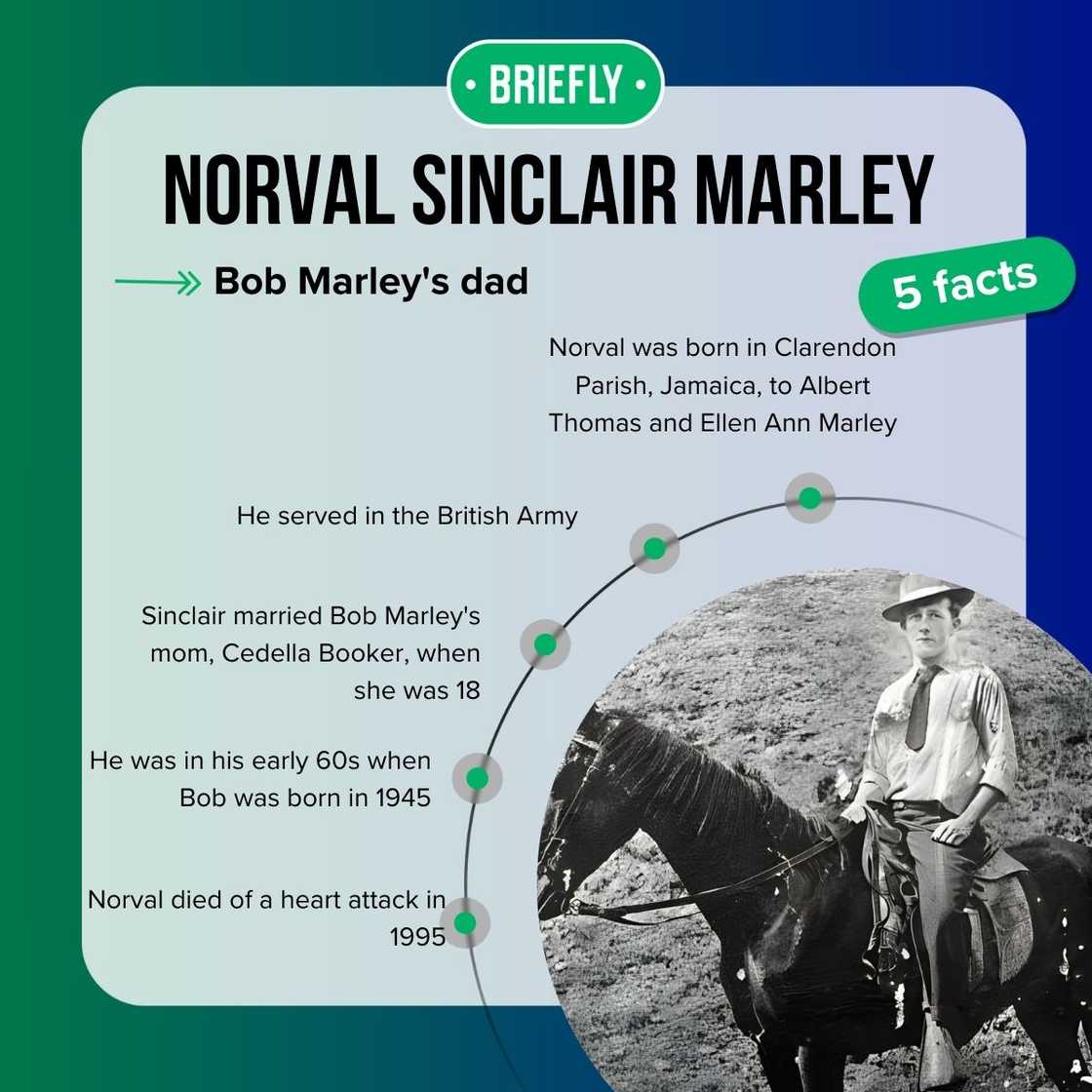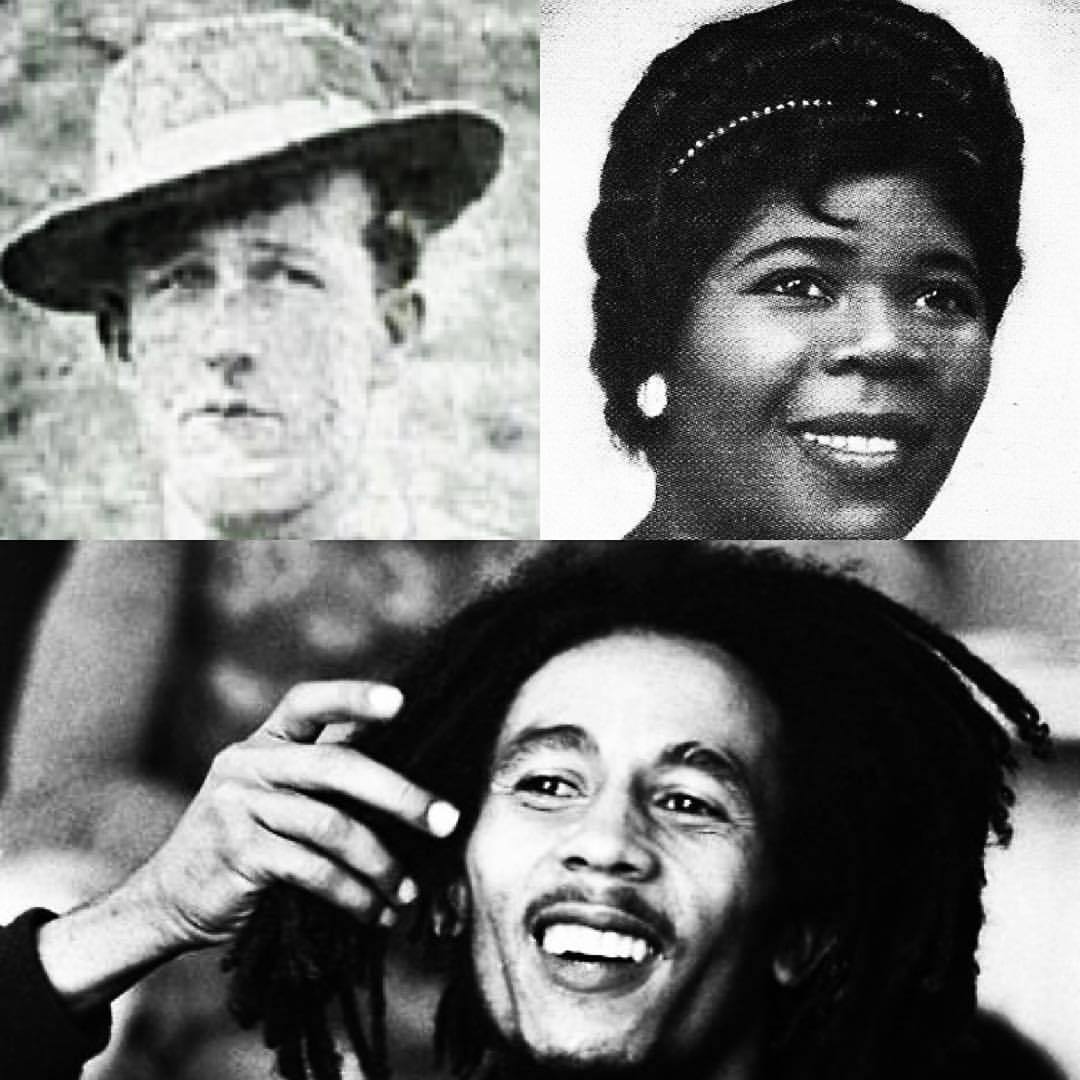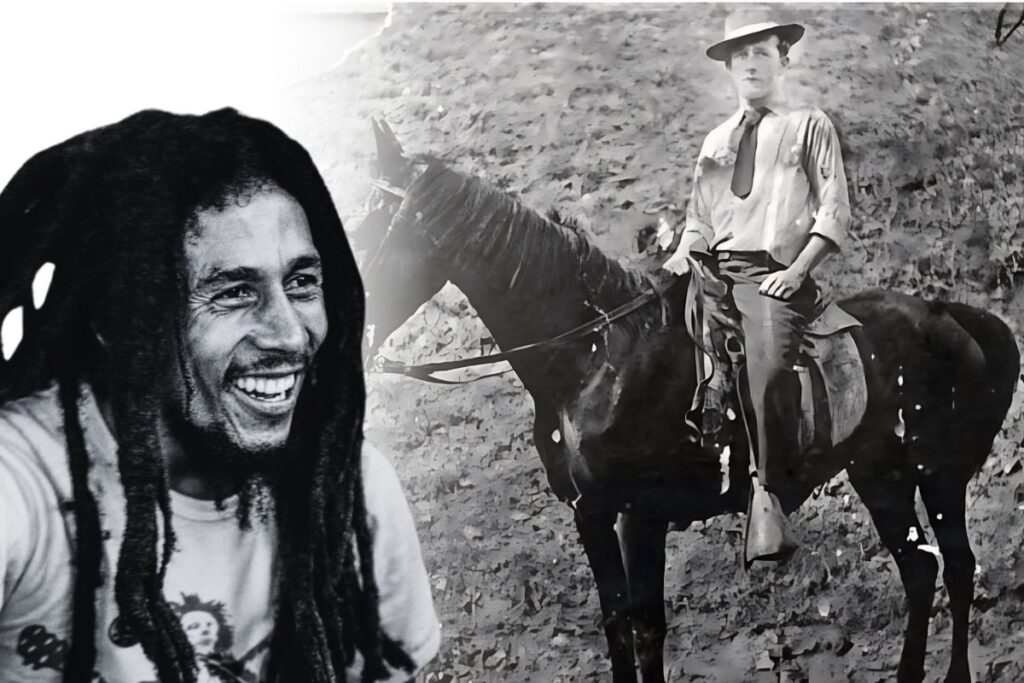Norval Sinclair Marley: Bob Marley's Father - What You Didn't Know
Have you ever wondered about the origins of a legend? Norval Sinclair Marley, the father of the iconic reggae musician Bob Marley, remains an enigmatic figure, shrouded in mystery despite his son's global fame.
Few figures in music history have achieved the legendary status of Bob Marley. His music transcended borders, carrying messages of peace, love, and revolution. While the world knows and celebrates Bob Marley, the story of his father, Norval Sinclair Marley, is less widely known. His identity, background, and influence on his son's life are subjects of ongoing interest. This is the story of the man who, while not a musician himself, played a significant, albeit understated, role in the life of one of music's most enduring icons.
| Full Name | Norval Sinclair Marley |
| Date of Birth | 1885 (reports vary, some suggest 1882) |
| Place of Birth | United Kingdom (reports vary, some suggest Jamaica) |
| Father | Albert Thomas Marley |
| Mother | Ellen Broomfield |
| Spouse | Cedella Editha Malcolm (Booker) |
| Marriage Date | June 9, 1944 |
| Marriage Place | Saint Ann, Jamaica |
| Occupation | British Army Officer, Plantation Overseer (reports vary) |
| Military Service | Joined the British Army in August 1916 in Liverpool, Royal Pioneer Corps |
| Date of Death | 1957 |
| Place of Death | Jamaica |
| Cause of Death | Reportedly heart attack |
| Son | Robert Nesta "Bob" Marley |
| Reference | Bob Marley Official Website |
Norval Sinclair Marley's life is pieced together from fragments of historical records, family anecdotes, and speculative accounts. He was born in the United Kingdom, although some accounts suggest Jamaica. The year of his birth is also debated, with 1885 being the most cited, while other sources suggest 1882. He was the son of Albert Thomas Marley and Ellen Broomfield. Albert is said to be of English descent, originating from Essex, while Ellen was Jamaican. This mixed heritage would later become a significant aspect of Bob Marley's identity.
- Taurus Scorpio Friendship Compatibility Challenges More
- Adriana Limas Kids A Glimpse Into Her Family Life Updated
Norval's early life remains largely undocumented. Some accounts depict him growing up in a privileged environment. It's suggested his father was a plantation owner and magistrate, granting the family a degree of wealth and status. Other accounts claim Norval worked as a rural overseer. Regardless of the specifics, he was a white man in a colonial society, a position that afforded him certain advantages.
Historical records indicate that Norval Marley joined the British Army in August 1916, enlisting in Liverpool. He prepared for service in the Royal Pioneer Corps, a domestic service unit. This suggests a period spent in England, though whether he traveled from Jamaica or had always resided there is unclear. His military service adds another layer to his identity, placing him within the context of British colonial history and the global conflicts of the early 20th century.
The most significant event in Norval Marley's life, at least in terms of its impact on the world, was his relationship with Cedella Malcolm. Cedella, a young black woman, was the daughter of a local custos, an honored community official. The circumstances of their meeting in Nine Mile, a rural village in Saint Ann Parish, Jamaica, are not widely known, but the relationship led to the birth of Robert Nesta Marley on February 6, 1945. Their relationship was considered controversial. Norval, significantly older than Cedella, and his position as a white man in a society marked by racial inequality, added to the complexities of their union. Some accounts suggest that Norval was a plantation foreman, overseeing Cedella's family's property, while other reports suggest a more romantic connection. Whatever the specifics, their relationship defied the social norms of the time.
Norval married Cedella on June 9, 1944, in Saint Ann, Jamaica, shortly before Bob's birth. However, their marriage was short-lived. Norval was often away, working or traveling, and his presence in Bob's early life was limited. This absence would later be cited as a formative experience for the young Bob Marley, influencing his music and his understanding of identity and belonging.
Accounts of Norval's character are scarce and often conflicting. Some describe him as a typical colonial figure, aloof and distant. Others suggest a more complex individual, caught between his privileged background and his connection to Cedella and their son. Given the limited information and the biases inherent in historical accounts, it's difficult to paint a complete and accurate portrait of his personality.
Norval Marley's involvement in Bob Marley's upbringing was minimal. He provided some financial support, but his physical presence was rare. Bob himself spoke little about his father, and those close to the reggae star rarely mentioned Norval. This silence has contributed to the mystery surrounding his figure.
The lack of a father figure during Bob's childhood is often cited as a crucial element in shaping his character and worldview. Bob's mixed racial heritage, combined with his father's absence, likely contributed to his sense of displacement and his later embrace of pan-Africanism and Rastafarianism. These ideologies provided a sense of belonging and identity in a world where he felt like an outsider. The absence of Norval created a void that Bob filled with his music, his faith, and his commitment to social justice.
Norval Marley died in 1957 in Jamaica. The exact date of his death is uncertain. Some reports suggest he died of a heart attack. His death further cemented his absence from Bob's life and left Cedella to raise their son on her own. Following Norval's death, Cedella and Bob moved to Trenchtown, a slum neighborhood in Kingston. This move marked a significant shift in their lives, exposing them to poverty and hardship but also immersing Bob in the vibrant music scene that would shape his future.
Norval Sinclair Marley's legacy is inextricably linked to his son's fame. While he was not a public figure or a particularly active presence in Bob's life, his existence shaped the circumstances of Bob's birth and upbringing. His absence, his racial identity, and his social status all played a role in forming the man who would become a global icon.
Understanding Norval Marley helps to contextualize Bob Marley's story. It sheds light on the complexities of race, class, and colonialism in Jamaica and the challenges faced by individuals of mixed heritage. It also underscores the profound impact that parental absence can have on a child's development and the ways in which individuals can overcome adversity to achieve greatness.
While much remains unknown about Norval Sinclair Marley, his role as the father of Bob Marley ensures that his story will continue to be told and reinterpreted. He represents a piece of the puzzle in understanding the life and legacy of one of music's most beloved and influential figures. He was, by some accounts, a white Jamaican, a label that encapsulates the complex social and racial dynamics of his time and place.
Even those closest to Bob Marley rarely spoke of Norval Sinclair Marley, who was born in the UK in 1885. The little information available paints a picture of a British naval officer who encountered Cedella Malcolm while working in Jamaica. He was, according to various accounts, in his early sixties when Bob was born. Bob's parents were Norval Sinclair Marley, identified as a white rural overseer, and Cedella Malcolm, the black daughter of a local custos.
Nesta Robert Marley was born on his maternal grandfather's farm in Nine Mile, Saint Ann Parish, Jamaica, to Norval Sinclair Marley and Cedella Booker. Cedella Booker later became a singer and author. Bob Marley is, undeniably, the son of Norval Marley and Cedella Booker. Norval's reported death from a heart condition further emphasizes the limited information available about him.
Born in 1885, Norval Sinclair Marley served as a British military officer. His relationship with Cedella Malcolm, Bob Marley's mother, was indeed brief yet pivotal in shaping Bob's identity. Some accounts suggest Norval was born in Jamaica to Albert Thomas Marley, an Englishman, and Ellen Marley ne Broomfield. Other sources indicate Norval Sinclair Marley was born in 1885 in Clarendon, Jamaica, to Albert Thomas Marley, an Englishman from Sussex, and Ellen Broomfield, a Jamaican woman of mixed African and European ancestry.
He was reportedly 59 years old when he had Bob Marley with Cedella Malcolm, a young Jamaican woman of 18. The age difference, skin color, and the fact that Norval was already married reportedly made their relationship a scandal in Jamaica at the time. Norval Sinclair Marley was, according to some sources, the foreman of the plantation managed by Cedella Malcolm's parents.
The influence of Norval Marley's absence on his son Bob is a recurring theme. He was largely absent from his son's childhood, and the limited time they spent together was, reportedly, traumatic. Norval Sinclair Marley died sometime between 1955 and 1957, although the exact date remains unknown.
- Khabib Nurmagomedovs Wife All About Patimat 2024 Update
- Taurus Scorpio Friendship Compatibility Challenges More

Norval Sinclair Marley The lesser known story of Bob Marley's dad

BOB MARLEY’S PARENTS’ WEDDING ANNIVERSARY Reggae In Seattle

Norval Sinclair Marley The Untold Story of Bob’s Father